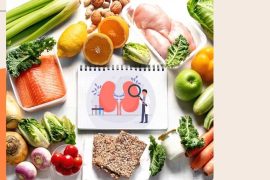The researchers’ study reveals a concerning nutritional disparity among participants, with only about half of them achieving a balanced nutritional intake in their meals and snacks. This imbalance negatively affects important health indicators such as blood sugar and fat levels. However, addressing this issue may be as straightforward as making dietary changes.
Unhealthy snacking habits were found to be particularly detrimental, as approximately 25 percent of individuals were observed to nullify the positive effects of their healthy main meals by consuming unhealthy snacks. This unhealthy snacking behavior significantly increased the participants’ risk of developing stroke and cardiovascular disease. The research was conducted by experts from the School of Life Course & Population Sciences and ZOE, involving 854 participants from the ZOE PREDICT project, and the findings were published in the European Journal of Nutrition.
Contrary to common belief, the analysis demonstrated that snacking itself is not inherently harmful, provided that the snacks are nutritious. Individuals who regularly consumed high-quality snacks such as nuts and fresh fruits were more likely to maintain a healthy weight. Moreover, the analysis revealed that these high-quality snacks had the potential to improve metabolic health and reduce appetite.
Dr Sarah Berry from King’s College London and chief scientist at ZOE said, “Considering 95 per cent of us snack, and that nearly a quarter of our calories come from snacks, swapping unhealthy snacks such as cookies, crisps and cakes to healthy snacks like fruit and nuts is a really simple way to improve your health.”
However, concerning dietary habits were also identified, as a quarter of the participants admitted to consuming unhealthy snacks in addition to their healthy main meals. These poor-quality snacks, including heavily processed foods and sweets, not only left people feeling hungry but were also associated with worse health markers. Consumption of such unhealthy snacks was linked to higher BMI, increased visceral fat mass, and elevated postprandial triglyceride concentrations, all of which are risk factors for metabolic diseases like obesity, stroke, and cardiovascular disease.
Dr Kate Bermingham from King’s College London and senior scientist at ZOE stated, “This study contributes to the existing literature that food quality is the driving factor in positive health outcomes from food. Making sure we eat a balanced diet of fruit, vegetables, protein and legumes is the best way to improve your health.”
Furthermore, the timing of snack consumption was found to be a significant factor in overall health. Research demonstrated that snacking after 9 p.m. was linked to worse blood indicators compared to snacking at other times. These late-night snacks typically consisted of calorie-dense, high-fat, and sugar-laden items, suggesting that the timing of snacks plays a crucial role in their impact on health.
Disclaimer:
The information contained in this article is for educational and informational purposes only and is not intended as a health advice. We would ask you to consult a qualified professional or medical expert to gain additional knowledge before you choose to consume any product or perform any exercise.







